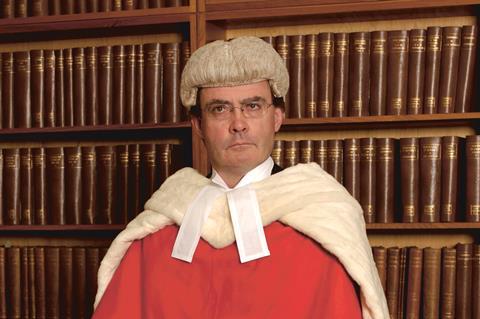A mere exchange of letters is unlikely to be sufficient to meet requirements for disclosure, the chancellor of the High Court has said, stressing the importance of parties engaging and cooperating in the process.
In a speech on ‘Disclosure in the Business and Property Courts’, Sir Julian Flaux discussed the origin of the current regime under Practice Direction 57AD, which led to the setting up of the Disclosure Working Group and the disclosure pilot scheme.
He offered guidance on the approach expected by the courts, including in relation to the framing of issues for disclosure, use of disclosure models and the importance of claimants and defendants reviewing data effectively, noting PD 57AD was written to provide both guidance and assistance to the parties.
Flaux said: 'Genuine and meaningful cooperation, discussion and engagement is required,' commenting that while the court can assist, such conversations must be practical. 'In a very simple case it may suffice to exchange views in letters. In most cases that is unlikely to be sufficient. The legal advisers must talk to each other with the objective being to provide the court with a workable framework for extended disclosure.'

In a speech delivered to over 600 solicitors, barristers and clients, hosted by Ed Crosse of City firm Simmons & Simmons and Natalie Osafo of City firm Stewarts, Flaux noted: 'Disclosure simply cannot operate effectively without the parties engaging with each other. That does not require them to abandon a tactical or strategic approach, but it does require them to communicate in a meaningful way to fulfil their obligations.'
Such efforts made in good faith would not attract sanctions, he suggested, but 'the position is different where one or both parties are in default and there has been a failure to engage in the way that is required.'
Disclosure is central to the system of litigation in England and Wales, Flaux said. 'We all, judges, practitioners, and clients, need to make the new system work well. It is in no one’s interests for the process to be mired in unnecessary complexity and cost.'
The culture change engendered by the reforms, noted Flaux, was a fundamental one. Given the growth of big data, Flaux added: 'Disclosure is unlikely to become easier as the volume and different types of data increases. However, if practitioners work hard to avoid unnecessary complexity… increasing volumes of data can be managed. For technology to work best, the parties need to discuss and agree how it should be used.'



























2 Readers' comments